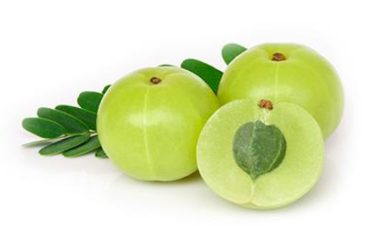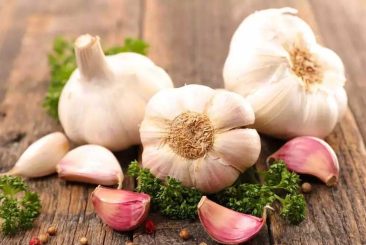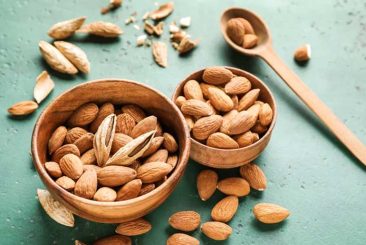The monsoon season brings with it increased humidity and rainfall, creating a favorable environment for the growth of bacteria and viruses. It’s important to prioritize your health and strengthen your immune system during monsoon season. Incorporating certain superfoods into your diet can provide essential nutrients and boost your immunity. Here are five such superfoods to consider:
- Amla (Indian Gooseberry):
Amla, also known as Indian Gooseberry, is a superfood that offers a wide range of health benefits, it is very beneficial in monsoon season. It is a small, round fruit that is greenish-yellow in color and has a sour taste. Amla is highly regarded in Ayurveda (traditional Indian medicine) for its medicinal properties. Here are some key benefits and ways to incorporate amla into your diet:

- Immune boosting: Amla is rich in vitamin C, which strengthens the immune system and helps fight off infections. It enhances the production of white blood cells, which are vital for immune function.
- Antioxidant powerhouse: Amla is loaded with antioxidants that help protect cells from damage caused by free radicals. These antioxidants contribute to overall health and may reduce the risk of chronic diseases.
- Digestive health: Amla aids digestion by stimulating the secretion of digestive enzymes. It can help alleviate constipation, promote regular bowel movements, and improve nutrient absorption.
- Skin and hair health: Amla is known for its beneficial effects on the skin and hair. Its high vitamin C content promotes collagen production, which maintains skin elasticity and reduces signs of aging. Amla oil is also popular for promoting hair growth and maintaining healthy hair.
- Diabetes management: Amla may help regulate blood sugar levels. It contains polyphenols that have hypoglycemic effects, which can be beneficial for individuals with diabetes.
There are various ways to incorporate amla into your diet:
- Fresh: You can consume raw amla by removing the seeds and eating it as a whole fruit. However, its sour taste may not be appealing to everyone.
- Amla juice: Extract the juice from amla and consume it directly or dilute it with water. You can also mix it with other fruit juices for a refreshing drink.
- Amla powder: Amla powder is a convenient option. You can mix it with water, juice, or smoothies. It can also be used as a seasoning in various dishes.
- Pickles and chutneys: Amla is commonly used to make pickles and chutneys, which can be enjoyed as a condiment or accompaniment to meals.
Remember to consult with a healthcare professional or nutritionist before making any significant changes to your diet, especially if you have any underlying health conditions or concerns.
-
Garlic:
Garlic is a widely used ingredient in various cuisines and is known for its distinct flavor and aroma, it is very beneficial in monsoon season. Besides being a popular culinary ingredient, garlic offers several health benefits due to its medicinal properties. Here are some key benefits and ways to incorporate garlic into your diet:

- Immune boosting: Garlic has antimicrobial and antiviral properties that can help strengthen the immune system and protect against common illnesses. It contains compounds like allicin, which have been shown to enhance immune function.
- Heart health: Garlic is beneficial for cardiovascular health. It helps lower blood pressure, reduce LDL cholesterol levels, and prevent the formation of blood clots, thereby reducing the risk of heart disease.
- Anti-inflammatory effects: Garlic possesses anti-inflammatory properties that can help reduce inflammation in the body. Chronic inflammation is linked to various diseases, including cardiovascular problems, arthritis, and certain cancers.
- Antioxidant properties: Garlic contains antioxidants that help combat oxidative stress and reduce damage caused by free radicals in the body. Antioxidants contribute to overall health and may help prevent chronic diseases.
- Digestive health: Garlic can promote digestive health by stimulating the production of digestive enzymes. It may aid in reducing gastrointestinal discomfort and improving digestion.
Here are some ways to incorporate garlic into your diet:
- Raw: Consuming raw garlic provides the most potent benefits. You can mince or crush a clove of garlic and add it to salads, dressings, or dips.
- Cooked: Garlic is commonly used in cooking to add flavor to various dishes. You can sauté it with vegetables, meats, or include it in soups, stews, sauces, or stir-fries.
- Roasted: Roasted garlic has a milder flavor and creamy texture. You can roast whole garlic bulbs in the oven until they become soft and spreadable. Use roasted garlic as a spread on bread or mix it into mashed potatoes or pasta.
- Supplements: Garlic supplements in the form of capsules or tablets are available for those who may prefer an alternative to raw or cooked garlic. However, it is advisable to consult with a healthcare professional before starting any supplements.
It’s important to note that while garlic has numerous health benefits, some individuals may experience gastrointestinal discomfort or have allergic reactions to garlic. If you have any specific health concerns or are on medication, it is advisable to consult with a healthcare professional before incorporating garlic or any new dietary changes into your routine.
-
Yogurt:
Yogurt is a popular dairy product that offers numerous health benefits. It is made by fermenting milk with live bacteria cultures, which convert lactose (milk sugar) into lactic acid, it is very beneficial in monsoon season. Here are some key benefits of yogurt and ways to incorporate it into your diet:

- Probiotics and gut health: Yogurt is a rich source of beneficial bacteria known as probiotics. These live cultures support the balance of gut microbiota, which plays a crucial role in digestion, nutrient absorption, and immune function. Consuming yogurt regularly can help maintain a healthy gut and improve digestive health.
- Immune system support: The probiotics in yogurt help stimulate the immune system, promoting the production of antibodies and enhancing immune function. A strong immune system is essential for defending against infections and illnesses.
- Nutrient-rich: Yogurt is packed with essential nutrients such as calcium, protein, B-vitamins, and minerals like potassium and magnesium. These nutrients contribute to bone health, muscle function, and overall well-being.
- Digestive comfort: The live cultures in yogurt aid in lactose digestion, making it easier for lactose-intolerant individuals to enjoy dairy products. Yogurt is generally well-tolerated and can help alleviate digestive discomfort.
- Weight management: Including yogurt in a balanced diet can support weight management efforts. It provides a good amount of protein and can help promote feelings of fullness, reducing overall calorie intake.
Here are some ways to incorporate yogurt into your diet:
- Enjoy it as is: Have a serving of plain yogurt as a snack or part of a meal. You can add a drizzle of honey or a sprinkle of fruits, nuts, or granola for added flavor and texture.
- Smoothies: Blend yogurt with fruits, vegetables, and a liquid of your choice to make a nutritious and refreshing smoothie. It can be a great breakfast option or a quick on-the-go snack.
- Parfaits: Layer yogurt with fresh fruits, granola, and a drizzle of honey or maple syrup to create a delicious and satisfying parfait.
- Salad dressings and dips: Use yogurt as a base for homemade salad dressings or creamy dips. It adds a tangy flavor and creamy texture to your dishes.
- Frozen treats: Freeze yogurt in popsicle molds or as a yogurt bark by mixing it with fruits, nuts, or even chocolate. These frozen treats make for a healthy dessert alternative.
When purchasing yogurt, opt for plain varieties without added sugars. You can also choose Greek yogurt, which has a thicker consistency and higher protein content. However, be mindful of any lactose intolerance or dairy allergies you may have. If you cannot consume dairy, there are non-dairy alternatives like almond milk or coconut milk yogurt that provide similar benefits.
-
Almonds:
Almonds are highly nutritious nuts that offer several health benefits. They are packed with essential nutrients and make for a convenient and tasty snack, it is very beneficial in monsoon season. Here are some key benefits of almonds and ways to incorporate them into your diet:

- Nutrient-rich: Almonds are a good source of healthy fats, protein, fiber, vitamins, and minerals. They contain vitamin E, magnesium, calcium, and potassium, among other nutrients, which contribute to overall health and well-being.
- Heart health: Almonds are heart-healthy nuts. They are rich in monounsaturated fats, which can help lower LDL (bad) cholesterol levels and reduce the risk of heart disease. The presence of antioxidants in almonds also benefits heart health.
- Weight management: Despite being calorie-dense, almonds can be a valuable addition to a weight management plan. The combination of protein, fiber, and healthy fats helps promote satiety and can help control appetite, potentially leading to better weight management.
- Blood sugar control: Almonds have a low glycemic index and are beneficial for managing blood sugar levels. The fiber and healthy fats in almonds slow down digestion and the release of glucose into the bloodstream, promoting better blood sugar control.
- Skin and hair health: Almonds contain vitamin E, which is known for its antioxidant properties and benefits for skin and hair health. Vitamin E helps protect against oxidative damage and supports healthy skin and hair growth.
Here are some ways to incorporate almonds into your diet:
- Snack on whole almonds: Enjoy a handful of raw or roasted almonds as a quick and satisfying snack. They can help curb hunger and provide an energy boost between meals.
- Almond butter: Spread almond butter on whole-grain toast, apples, or celery sticks for a nutritious and delicious snack. Look for natural varieties without added sugars or unhealthy oils.
- Almond milk: Use almond milk as a dairy-free alternative in smoothies, cereal, or coffee. You can also make your own almond milk by blending soaked almonds with water and straining the mixture.
- Salads and stir-fries: Sprinkle sliced or slivered almonds over salads, stir-fries, or roasted vegetables to add crunch and flavor.
- Almond flour: Replace regular flour with almond flour in baking recipes for a gluten-free and nutrient-rich alternative. Almond flour works well in recipes for cookies, muffins, and pancakes.
Remember that almonds are high in calories, so it’s essential to consume them in moderation. A recommended portion size is about 1 ounce or 23 almonds, which provides around 160 calories. If you have any nut allergies or specific dietary concerns, it’s best to consult with a healthcare professional or registered dietitian before incorporating almonds or any new food into your diet.
-
Green Tea:
Green tea is a popular beverage known for its numerous health benefits. It is made from the leaves of the Camellia sinensis plant and is rich in antioxidants and beneficial compounds, it is very beneficial in monsoon season. Here are some key benefits of green tea and ways to incorporate it into your routine:

- Antioxidant powerhouse: Green tea is loaded with antioxidants, particularly catechins and polyphenols. These compounds help protect cells from damage caused by free radicals, thereby reducing the risk of chronic diseases and promoting overall health.
- Boosts metabolism and weight management: Green tea has been associated with boosting metabolism and aiding in weight management. It contains catechins and caffeine, which may help increase fat oxidation and thermogenesis (the process of heat production in the body), leading to potential weight loss benefits.
- Supports heart health: Regular consumption of green tea has been linked to a reduced risk of heart disease. The antioxidants in green tea help lower LDL (bad) cholesterol levels, reduce blood pressure, and improve blood vessel function.
- Enhances brain function: Green tea contains caffeine, which acts as a mild stimulant, promoting alertness and focus. It also contains an amino acid called L-theanine, which has calming effects and can help improve mood and cognitive function.
- Promotes oral health: The catechins in green tea have antibacterial properties that can help inhibit the growth of harmful bacteria in the mouth. This may contribute to improved oral health, reducing the risk of gum disease and cavities.
Here are some ways to incorporate green tea into your routine:
- Hot or iced tea: Brew green tea leaves or use green tea bags in hot water for a soothing cup of tea. You can also let it cool and serve it over ice for a refreshing iced tea.
- Matcha: Matcha is a powdered form of green tea that is whisked into hot water. It provides a more concentrated dose of antioxidants and can be used in beverages, smoothies, desserts, or even added to recipes like pancakes or muffins.
- Green tea lattes: Create a creamy and flavorful green tea latte by combining brewed green tea with frothed milk of your choice. You can add a touch of sweetener or flavorings like vanilla or cinnamon if desired.
- Cooking: Use green tea as an ingredient in cooking or baking. Infuse it into sauces, broths, marinades, or use it as a flavoring in desserts and baked goods.
When selecting green tea, opt for high-quality loose-leaf tea or tea bags to ensure maximum freshness and potency. It’s generally recommended to limit consumption to moderate amounts, as excessive intake of caffeine from green tea may have adverse effects for some individuals.
Remember to combine these superfoods with a well-balanced diet, regular exercise, sufficient hydration, and proper hygiene practices to ensure optimal health during the monsoon season.
Disclaimer:
The information contained in this article is for educational and informational purposes only and is not intended as a health advice. We would ask you to consult a qualified professional or medical expert to gain additional knowledge before you choose to consume any product or perform any exercise.









